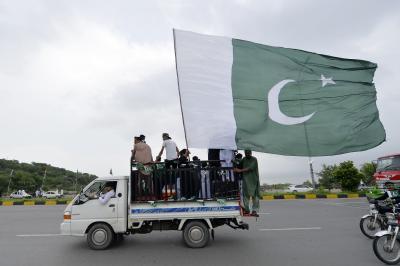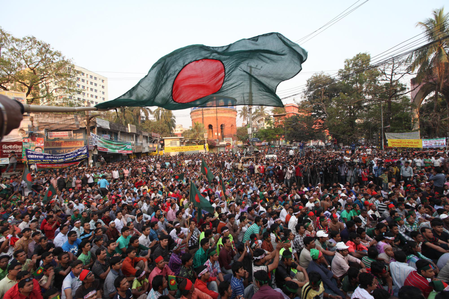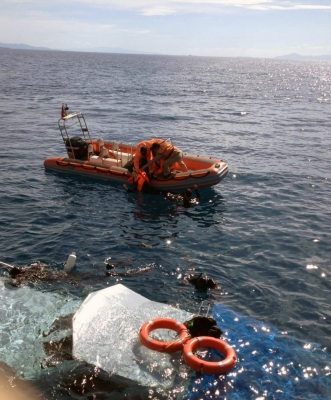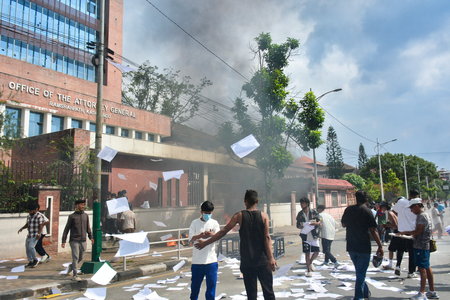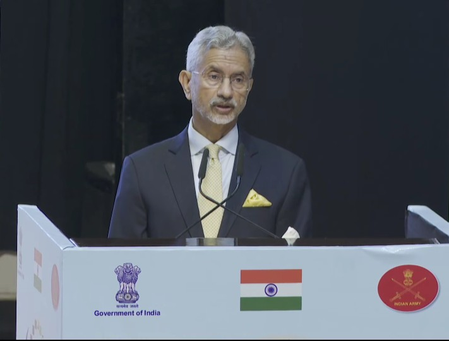
New Delhi, Oct 16 (IANS) External Affairs Minister (EAM) S. Jaishankar on Thursday said the United Nations continues to mirror the world of 1945 rather than the realities of 2025, stressing that the need for reform has become urgent.
However, he noted that the process of reform is being used to “derail the agenda”, which allows historical injustices to persist.
Speaking at the United Nations Troop Contributing Countries Chiefs’ Conclave (UNTCC 2025) in New Delhi, Jaishankar said that India’s approach to peacekeeping is rooted in its civilisational ethos and guided by the principle of ‘Vasudhaiva Kutumbakam’ — the belief that ‘the world is one family’.
“It is a privilege to address this distinguished gathering of military leaders from troop contributing countries — the architects, the upholders, and the messengers of peace. You reflect the strength of an institution that has, for nearly eight decades, stood out as a beacon of hope in a conflict-ridden world — United Nations Peacekeeping,” he added.
He said India’s peacekeeping philosophy is shaped by the idea that global cooperation must rest on justice and inclusivity.
“India approaches peacekeeping from its civilisational ethos. We see the world as one family, a vision enshrined in the timeless phrase ‘Vasudhaiva Kutumbakam’. This is not just cultural wisdom, but an outlook that anchors our worldview,” Jaishankar said.
“It is why India has consistently advocated for justice, dignity, opportunity, and prosperity for all societies and people. It is also why we place our faith in multilateralism and international partnerships,” he added.
Highlighting the interconnected challenges of the modern era, Jaishankar said global crises — from pandemics and terrorism to economic instability and climate change — demand cooperative rather than competitive responses.
“Our responses must transcend the competitive aspects of international politics. The natural starting point for such collaborations is the United Nations,” he said.
Sharing insights from his recent visit to New York for the United Nations General Assembly (UNGA), Jaishankar remarked, “The United Nations today still reflects the realities of 1945, not of 2025. Eighty years is a long time by any standards, and during this period, the UN membership has actually quadrupled.”
He warned that institutions unable to adapt to changing realities risk becoming obsolete.
“Institutions that fail to adapt risk irrelevance — not just irrelevance, but eroding legitimacy, leaving us without recourse in times of uncertainty,” he said.
Calling for urgent reform, the minister asserted that for the UN to remain effective, it must “become more inclusive, democratic, participative, and representative of today’s world”.
He added that the UN’s credibility depends on its ability to “amplify the voices of the developing world and reflect the aspirations of the rising global south.”
Jaishankar acknowledged that many UN members support the expansion of both Permanent and Non-Permanent categories of the UN Security Council. However, he said, “the process of reform itself is being used to derail the agenda, and as a result, historical injustices still continue.”
He reaffirmed India’s commitment to taking on greater responsibilities in a reformed United Nations and a reformed multilateral order.
Praising the contributions of peacekeepers worldwide, Jaishankar said UN peacekeeping has proven what collective action can achieve when nations unite for a larger cause.
“Our peacekeepers have been a powerful force for good. These brave sons and daughters put their lives on the line to protect civilians, to deliver humanitarian aid, and to support fragile peace processes. They are the real torchbearers of multilateralism,” he said.
“Let me honour today the more than 4,000 UN and 182 Indian peacekeepers who have made the ultimate sacrifice in the line of duty. They stand out as a testament to bravery, and their legacy remains a solemn call to action for all of us. We must ensure that their message lives on,” he added.
Reflecting on the evolution of peacekeeping, Jaishankar said that although it was not part of the original UN design, it has become one of the most important instruments of the organisation.
“Currently, it draws its mandate from the decisions of the UN Security Council. Changing geopolitical dynamics, the complexities of world affairs, and the nature of conflicts have all shaped the demands of peacekeeping. We all recognise that peacekeeping has been the flagship endeavour and the most effective instrument of the United Nations,” he said.
He outlined several key concerns about peacekeeping operations, emphasising that troop-contributing countries and host states must be consulted while drafting mission mandates.
He said mandates should be realistic, clear, and aligned with available resources, adding that “the primary responsibility for the protection of civilians lies with the host state.”
Underscoring the role of innovation, Jaishankar said, “Technology and peacekeeping go hand in hand and are a force multiplier in peacekeeping operations. As a nation that has embraced innovation, let me underline that India stands ready to be a technology demonstrator to enhance the operational capacity of peacekeeping.”
He further stressed the importance of combating misinformation and ensuring the safety of peacekeepers.
“To address the needs of strategic communication, we must strive to counter misinformation and disinformation. The role of ICT is therefore very important,” he said, adding, “Paramount importance must be given to the safety and security of peacekeepers. We must always ensure that perpetrators of any attack on them are brought to justice.”
–IANS
sd/dpb

